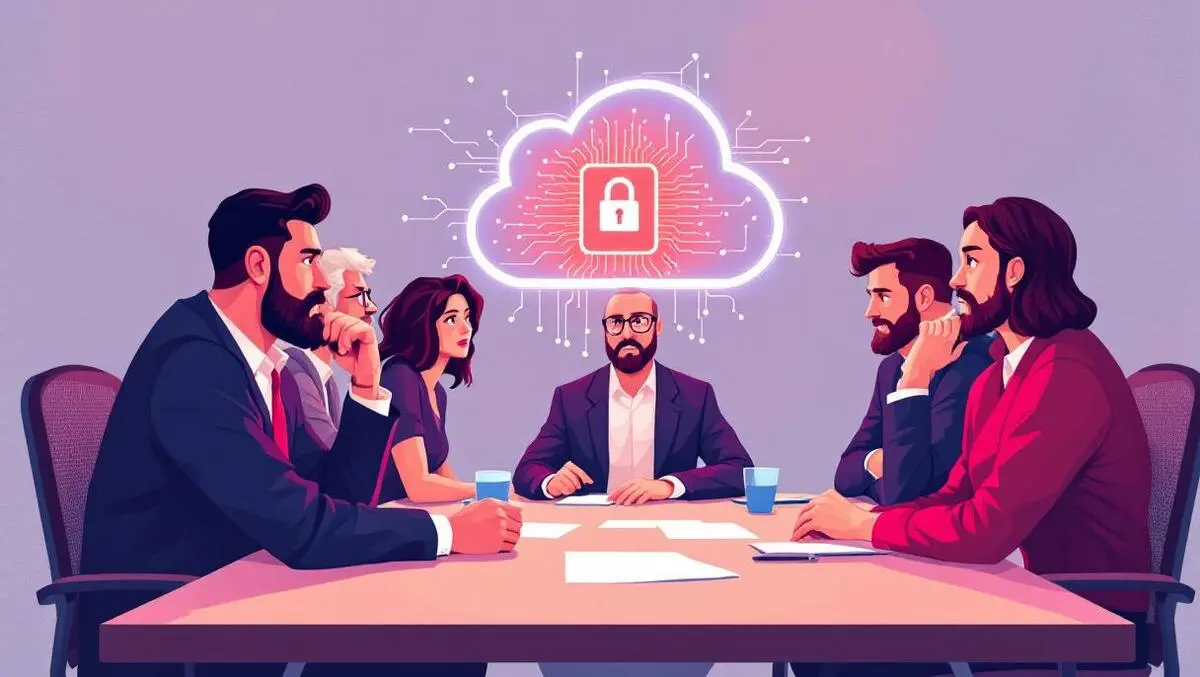
C-suite divisions slow GenAI adoption due to security worries
A new report from NTT DATA has highlighted a misalignment among senior executives regarding the adoption and security implications of generative artificial intelligence (GenAI) in organisations globally.
NTT DATA's report, "The AI Security Balancing Act: From Risk to Innovation," is based on survey responses from more than 2,300 senior GenAI decision makers, including over 1,500 C-level executives across 34 countries. The findings underscore a gap between the optimism of CEOs and the caution of Chief Information Security Officers (CISOs) concerning GenAI deployment.
C-Suite perspectives
The report indicates that 99% of C-Suite executives are planning to increase their GenAI investments over the next two years, with 67% of CEOs preparing for significant financial commitments. In comparison, 95% of Chief Information Officers (CIOs) and Chief Technology Officers (CTOs) report that GenAI is already influencing, or will soon drive, greater spending on cybersecurity initiatives. Improved security was named among the top three benefits realised from GenAI adoption in the past year.
Despite these high expectations, a considerable number of CISOs express reservations. Nearly half (45%) of CISOs surveyed shared negative sentiments about GenAI rollouts, identifying security gaps and the challenge of modernising legacy infrastructure as primary barriers.
The report also finds differences in the perception of policy clarity. More than half of CISOs (54%) stated that internal GenAI policies are unclear, compared with just 20% of CEOs. This suggests a disconnect between business leaders' strategic vision and concerns raised by operational security managers.
"As organisations accelerate GenAI adoption, cybersecurity must be embedded from the outset to reinforce resilience. While CEOs champion innovation, ensuring seamless collaboration between cybersecurity and business strategy is critical to mitigating emerging risks," said Sheetal Mehta, Senior Vice President and Global Head of Cybersecurity at NTT DATA, Inc. "A secure and scalable approach to GenAI requires proactive alignment, modern infrastructure and trusted co-innovation to protect enterprises from emerging threats while unlocking AI's full potential."
Operational and skills challenges
The study highlights that, while 97% of CISOs consider themselves GenAI decision makers, 69% acknowledge their teams currently lack the necessary skills to work effectively with GenAI technologies. Only 38% of CISOs said their organisation's GenAI and cyber security strategies are aligned, compared with 51% of CEOs.
Another area of concern identified is the absence of clearly defined policies for GenAI use within organisations. According to the survey, 72% of respondents had yet to implement a formal GenAI usage policy, and just 24% of CISOs strongly agreed their company has an adequate framework for balancing the risks and rewards of GenAI adoption.
Infrastructure and technology barriers
Legacy technology also poses a significant challenge to GenAI integration. The research found that 88% of security leaders believe outdated infrastructure is negatively affecting both business agility and GenAI readiness. Upgrading systems such as Internet of Things (IoT), 5G, and edge computing was identified as crucial for future progress.
To address these obstacles, 64% of CISOs reported prioritising collaboration with strategic IT partners and co-innovation, rather than relying on proprietary AI solutions. When choosing GenAI technology partners, security leaders ranked end-to-end service integration as their most important selection criterion.
"Collaboration is highly valued by line-of-business leaders in their relationships with CISOs. However, disconnects remain, with gaps between the organisation's desired risk posture and its current cybersecurity capabilities," said Craig Robinson, Research Vice President, Security Services at IDC. "While the use of GenAI clearly provides benefits to the enterprise, CISOs and Global Risk and Compliance leaders struggle to communicate the need for proper governance and guardrails, making alignment with business leaders essential for implementation."
Survey methodology
The report's data derives from a global survey of 2,300 senior GenAI decision makers. Of these respondents, 68% were C-suite executives, with the remainder comprising vice presidents, heads of department, directors, and senior managers. The research, conducted by Jigsaw Research, aimed to capture perspectives on both the opportunities and risks associated with GenAI across different regions and sectors.
The report points to the need for structured governance, clarity in strategic direction, and investment in modern infrastructure to ensure successful and secure GenAI deployments in organisations.


